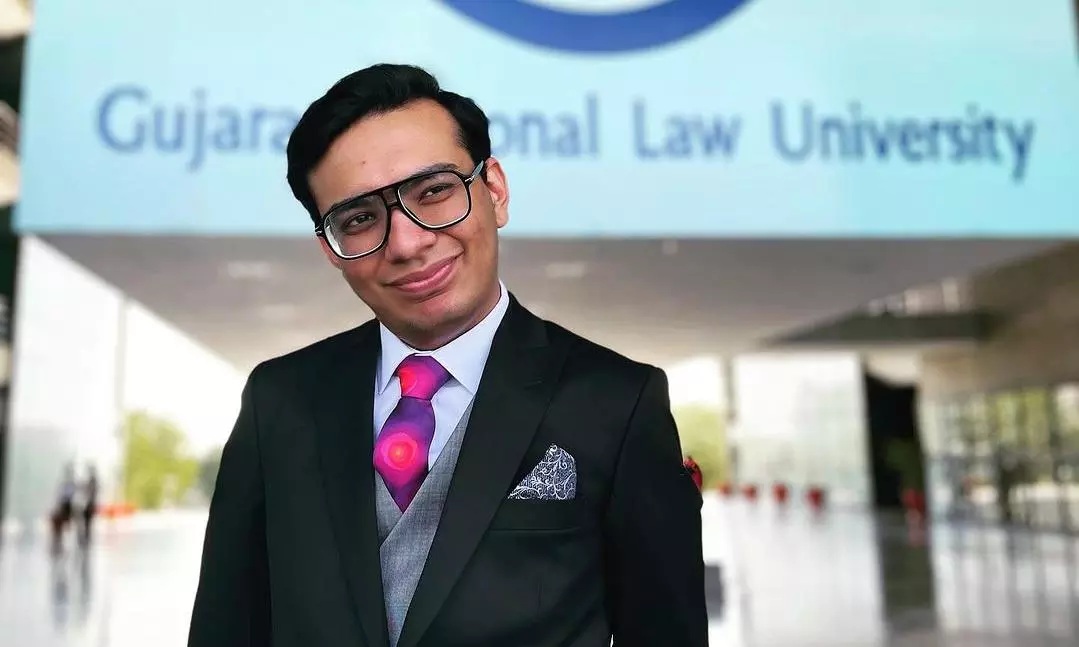
Disheartened, but fight goes on: Queer lawyer-activist Rohin Bhatt on SC verdict
Rohin Bhatt says "they are branded second-class citizens, no matter how many judicial platitudes say otherwise"

Among the lawyers involved in the case of same-sex marriage in the Supreme Court for marriage equality is a 24-year-old Advocate Rohin Bhatt, a graduate of the Gujarat National Law University (GNLU) Ahmedabad.
It was a special morning as Bhatt got ready for work wearing a pink scarf on lapel as a symbol of ‘pride” and the cufflinks given to him by his lover. The young Supreme Court lawyer, who identifies as a queer, like many, had been eagerly waiting for the verdict.
However, for Bhatt and for the queer community of India, it was a disappointment.
“Today the Supreme Court has reaffirmed that queer citizens will be relegated to an unsympathetic legislature and an apathetic executive. We are second-class citizens, no matter how many judicial platitudes say otherwise,” wrote Rohin Bhatt after the verdict.
“Queer people have nothing now. The situation remains unchanged for us as it was before the trial. We had, in fact, huge hopes in the apex court. Needless to say, we are disheartened and disappointed. But for us, it doesn’t end here, if there is one thing we queer do is to persist and fight back. And we will continue to do so, we will fight harder, love harder,” Bhatt told the Federal over a telephonic conversation.
Even as the Supreme Court was dealing with a bunch of litigations seeking recognition of same-sex marriage and the Union was opposing these petitions, Bhatt went up on stage to receive the degree from GNLU, wearing the pride scarf on his convocation day in March this year to receive the degree from Justices MR Shah and Bela Trivedi of the Supreme Court.
Bhatt now works in the chambers of senior advocates Indira Jaising and Anand Grover who represent litigants in the same sex marriage case.
“I provide legal and research assistance. I joined them in July last year and since then, I have drafted two petitions, one in the case filed by Sameer Samudra and the other in the case filed by Nitin Karani,” said Bhatt.
Bhatt's turning point
Bhatt “came out of the closet” in 2021.
“Growing up as a gay boy in Ahmedabad, I went through everything queer people go through. I was bullied in school. I was in the closet, through my five years at GNLU in Ahmedabad. I had gay friends whom I had met through dating applications but I wasn’t ready to come out in open. I stayed away from queer events and any public platform for queers. I could come out only after I got admission to Harvard in 2021. I came out with a post on Instagram,” he said.
“I talked to my younger sibling first and then to my parents. They are very supportive,” he added.
“Five years after Navtej Singh Johar India case’s decision, our country still lacks an anti-discrimination law. Queer persons are still regularly discriminated against and have no social security measures,” Bhatt said.
“The decision in Navtej Singh Johar case had fostered a public culture of rights and greater inclusion in India. But at the same time, the queer community also faced a backlash of culture of homophobia rooted in hyper-nationalism. But all is not lost. There is increased queer visibility, there are far more queer persons in open than ever before. Slowly but surely we will get there,” says Bhatt.

